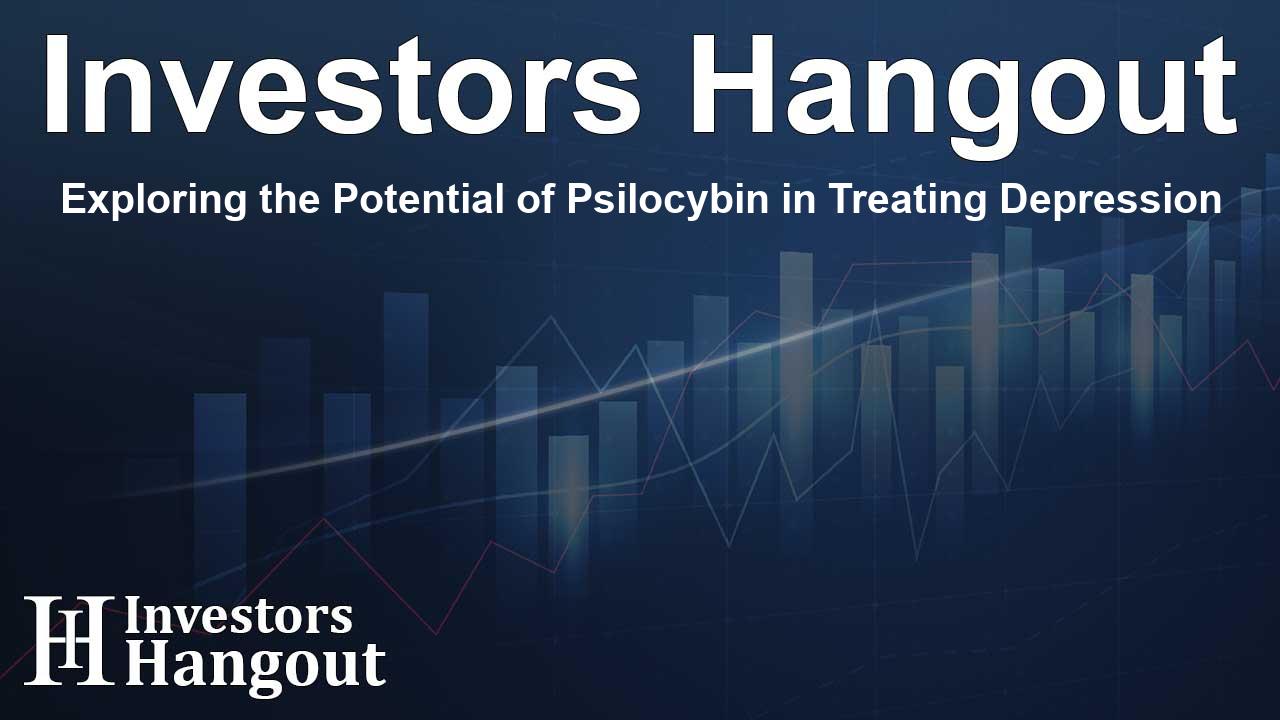Exploring the Potential of Psilocybin in Treating Depression

Exploring the Potential of Psilocybin in Treating Depression
Recent research has uncovered a promising opportunity for psilocybin-assisted therapy within the U.S. mental healthcare system. This innovative approach has the potential to revolutionize how we address depression, particularly for those suffering from major depressive disorder (MDD) or treatment-resistant depression (TRD). Researchers from various universities have reported that up to 5.6 million Americans could benefit from psilocybin therapy if it gains FDA approval.
A Breakthrough Approach to Treating Depression
The findings, published in a recent study, shed light on the FDA's interest in psilocybin derived from Psilocybe cubensis mushrooms as a breakthrough therapy. This designation allows for expedited processing of drugs that show promise in treating severe conditions. Psilocybin appears to be exceptionally effective for individuals who have not had success with conventional treatments, offering hope where there once was little.
The Research Findings
The study indicates that approximately 1.7 million individuals with TRD may benefit from psilocybin therapy immediately. Furthermore, if MDD is considered, the total rises to an impressive 5.6 million potential beneficiaries. Lead author Dr. Syed Fayzan Rab underscored the magnitude of this development, highlighting the urgent need to prepare for implementing such a groundbreaking treatment.
The Economic Impact of Psilocybin-Assisted Therapy
The implications of psilocybin's approval stretch beyond healthcare advancements; they penetrate the economic realm as well. A recent estimate suggested that each session of psilocybin-assisted therapy could amount to around $1,500 per patient. Given the large demographic potentially seeking treatment, the market could yield billions in revenue once approved.
Companies in the Psilocybin Market
Numerous pharmaceutical companies are strategically positioning themselves to tap into this lucrative market. Notable players include Compass Pathways (NASDAQ: CMPS), Atai Life Sciences (NASDAQ: ATAI), and Mindset Pharma (OTC: MSSTF), all actively engaged in developing psilocybin-based therapies. Their efforts could significantly shape the future of mental health treatment by providing innovative solutions that address longstanding challenges.
Beyond Depression: The Expanding Horizons of Psilocybin
While psilocybin is primarily recognized for its potential in combating depression, its therapeutic applications are diverse. Current research is exploring its effectiveness in treating chronic pain and post-traumatic stress disorder (PTSD). The implications of these studies suggest that psilocybin could be instrumental not only in mental health but also in addressing various chronic health conditions.
Challenges Ahead
Despite the potential benefits, psilocybin's journey towards legality remains complex. It is classified as a Schedule I drug federally, which complicates its acceptance for medical use. This classification is shared with other substances like marijuana and LSD, presenting hurdles for future research and application.
Policy Changes and Future Directions
A growing number of states and local jurisdictions have begun decriminalizing psilocybin, reflecting a shift toward progressive policy reforms regarding its potential use. This trend underscores an increasing demand for open dialogue about psilocybin's applications and benefits.
Dr. Charles Raison, a leading psychiatrist involved in the recent study, articulated hopes that these findings will encourage constructive conversations and preparations to integrate this innovative treatment effectively while minimizing potential setbacks.
Frequently Asked Questions
What is psilocybin-assisted therapy?
Psilocybin-assisted therapy involves using psilocybin, a psychedelic compound found in certain mushrooms, to treat mental health conditions like depression.
How can psilocybin help individuals with depression?
Research indicates that psilocybin can produce significant therapeutic benefits, particularly for those who haven't responded well to traditional treatments.
What is the economic potential of psilocybin therapy?
Each therapy session could cost around $1,500, and with millions eligible for treatment, the psilocybin market could generate substantial revenue.
Which companies are involved in psilocybin research?
Companies like Compass Pathways, Atai Life Sciences, and Mindset Pharma are actively developing psilocybin-based treatments, aiming to address mental health challenges.
What challenges does psilocybin face for legalization?
It is currently classified as a Schedule I drug at the federal level, complicating efforts to approve its medical use despite growing public support and state-level reforms.
About Investors Hangout
Investors Hangout is a leading online stock forum for financial discussion and learning, offering a wide range of free tools and resources. It draws in traders of all levels, who exchange market knowledge, investigate trading tactics, and keep an eye on industry developments in real time. Featuring financial articles, stock message boards, quotes, charts, company profiles, and live news updates. Through cooperative learning and a wealth of informational resources, it helps users from novices creating their first portfolios to experts honing their techniques. Join Investors Hangout today: https://investorshangout.com/
Disclaimer: The content of this article is solely for general informational purposes only; it does not represent legal, financial, or investment advice. Investors Hangout does not offer financial advice; the author is not a licensed financial advisor. Consult a qualified advisor before making any financial or investment decisions based on this article. The author's interpretation of publicly available data shapes the opinions presented here; as a result, they should not be taken as advice to purchase, sell, or hold any securities mentioned or any other investments. The author does not guarantee the accuracy, completeness, or timeliness of any material, providing it "as is." Information and market conditions may change; past performance is not indicative of future outcomes. If any of the material offered here is inaccurate, please contact us for corrections.